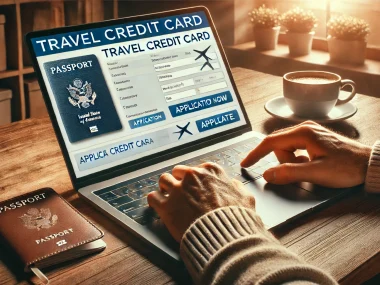Corporate travel managers play a crucial role in ensuring business trips run smoothly, efficiently, and cost-effectively. In today’s fast-paced corporate world, where companies frequently send employees on business trips, having a dedicated expert to handle all travel logistics is more important than ever. From negotiating the best rates with airlines and hotels to ensuring compliance with corporate policies, these professionals are indispensable in today’s business landscape.
Who is a Corporate Travel Manager?
A corporate travel manager is responsible for organizing and managing business travel for a company’s employees. Their primary duties include:
- Planning and booking flights, hotels, and transportation
- Negotiating with travel vendors for the best deals
- Ensuring employees follow the company’s travel policy
- Managing travel budgets and expenses
- Handling travel emergencies and disruptions
With business travel being a multi-billion-dollar industry, companies recognize the importance of hiring skilled professionals to oversee travel operations. Poor travel management can lead to overspending, employee dissatisfaction, and compliance issues.
Why Companies Need Corporate Travel Managers
Many businesses, especially those with frequent travelers, rely heavily on corporate travel managers. Here’s why their role is so essential:
1. Cost Savings and Budget Control
One of the biggest advantages of having a travel manager is cost optimization. They ensure companies get the best possible deals on flights, hotels, and car rentals. Through corporate negotiations and partnerships with travel service providers, they secure significant discounts that individual employees wouldn’t be able to access.
2. Policy Compliance and Risk Management
Companies have strict travel policies to regulate expenses and ensure employee safety. A corporate travel manager ensures all business trips align with these policies. They also implement risk management strategies, keeping track of travelers’ locations and providing emergency support when needed.
3. Convenience and Efficiency
Instead of employees spending hours booking flights and accommodations, a travel manager takes care of everything, allowing employees to focus on their work. They also streamline processes by using travel management software, which consolidates itineraries and automates approvals.
4. Handling Travel Disruptions
Flight cancellations, hotel overbookings, and last-minute schedule changes are common challenges in business travel. Corporate travel managers act as problem-solvers, quickly finding alternative solutions to keep business trips on track.
5. Enhancing Employee Experience
A well-managed business trip leads to happier employees. By ensuring comfort and smooth travel experiences, corporate travel managers contribute to job satisfaction and productivity. No one wants to deal with travel stress when they have an important business meeting ahead.
Skills and Qualifications of a Corporate Travel Manager
To excel in this role, professionals must possess a combination of industry knowledge, negotiation skills, and problem-solving abilities. Here are some key skills required:
- Negotiation Skills – Ability to secure favorable deals with airlines, hotels, and travel agencies.
- Attention to Detail – Ensuring accuracy in bookings, budgets, and policies.
- Communication Skills – Clear interaction with employees, vendors, and executives.
- Crisis Management – Handling unexpected travel issues swiftly.
- Technology Proficiency – Familiarity with travel booking software and expense management tools.
Many companies prefer candidates with a background in business administration, travel management, or hospitality. Certifications from recognized bodies like the Global Business Travel Association (GBTA) can also boost a professional’s credentials.
How to Become a Corporate Travel Manager
If you’re considering a career in corporate travel management, here are the steps to follow:
1. Get the Right Education
A degree in hospitality, business management, or tourism can be beneficial. Some professionals also come from backgrounds in finance or operations.
2. Gain Industry Experience
Starting in an entry-level travel coordination or customer service role provides hands-on experience in the travel industry.
3. Obtain Relevant Certifications
Certifications such as the Global Travel Professional (GTP) or Certified Corporate Travel Executive (CCTE) can enhance credibility.
4. Develop Strong Vendor Relationships
Building connections with travel suppliers helps in securing the best deals and exclusive benefits for the company.
5. Stay Updated with Travel Trends
With evolving travel policies, airline regulations, and technology, staying informed is crucial for success in this role.
READ ALSO: Merchant Services for Travel Agencies: The Best Payment Solutions to Boost Your Business
Technology in Corporate Travel Management
Technology plays a massive role in modern corporate travel management. Companies use advanced tools to streamline booking, expense tracking, and compliance monitoring. Some popular travel management software includes:
- SAP Concur – Automates travel expenses and booking approvals.
- Egencia – A corporate travel platform by Expedia for seamless business trips.
- TravelPerk – Provides flexible business travel solutions with real-time expense reporting.
Artificial intelligence and data analytics have also revolutionized corporate travel, making it easier to predict costs, optimize routes, and enhance the traveler experience.
Corporate Travel Management Trends in 2025
Business travel is evolving, and corporate travel managers must keep up with industry trends. Some emerging trends include:
1. Sustainable Business Travel
Companies are increasingly prioritizing eco-friendly travel options, such as carbon offset programs and green-certified hotels.
2. Flexible Travel Policies
The rise of remote work and hybrid models has led to changes in corporate travel policies. Businesses now offer more flexibility in travel arrangements.
3. Digital Travel Assistants
AI-powered travel assistants provide real-time itinerary updates, helping travelers stay informed about flight changes, weather conditions, and local travel restrictions.
4. Increased Focus on Traveler Well-being
Companies are placing more emphasis on employee wellness, ensuring business travelers have access to comfortable accommodations, healthy meal options, and stress-free travel experiences.
Conclusion
Corporate travel managers are an integral part of modern business operations. Their ability to reduce costs, manage risks, and enhance employee experiences makes them invaluable to companies of all sizes. As business travel continues to evolve, these professionals will play an even more significant role in shaping travel policies, optimizing budgets, and leveraging technology for seamless corporate trips.
For businesses that frequently send employees on work trips, hiring a skilled corporate travel manager is not just an option—it’s a necessity. With the right expertise, companies can navigate the complexities of business travel while ensuring efficiency, compliance, and traveler satisfaction.





